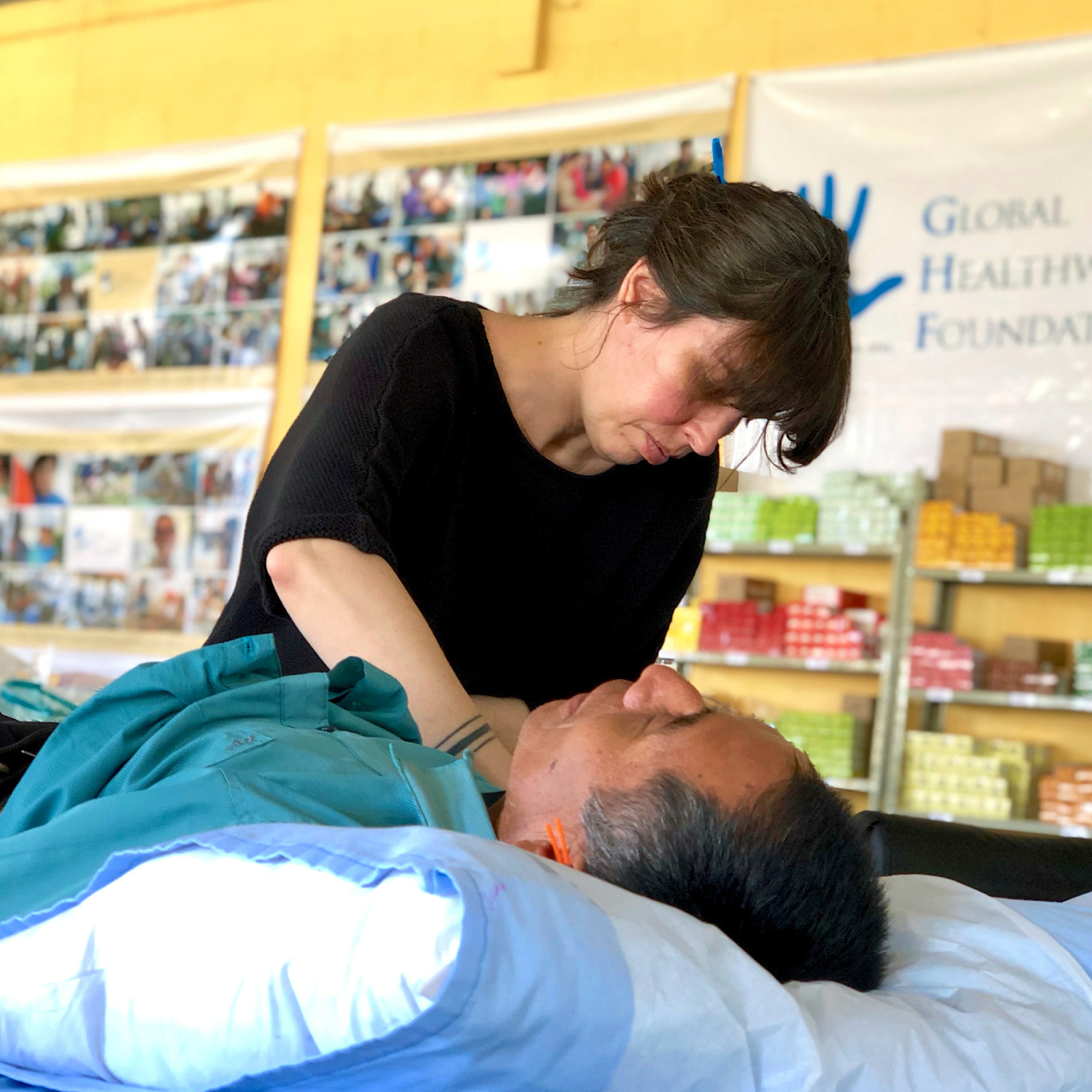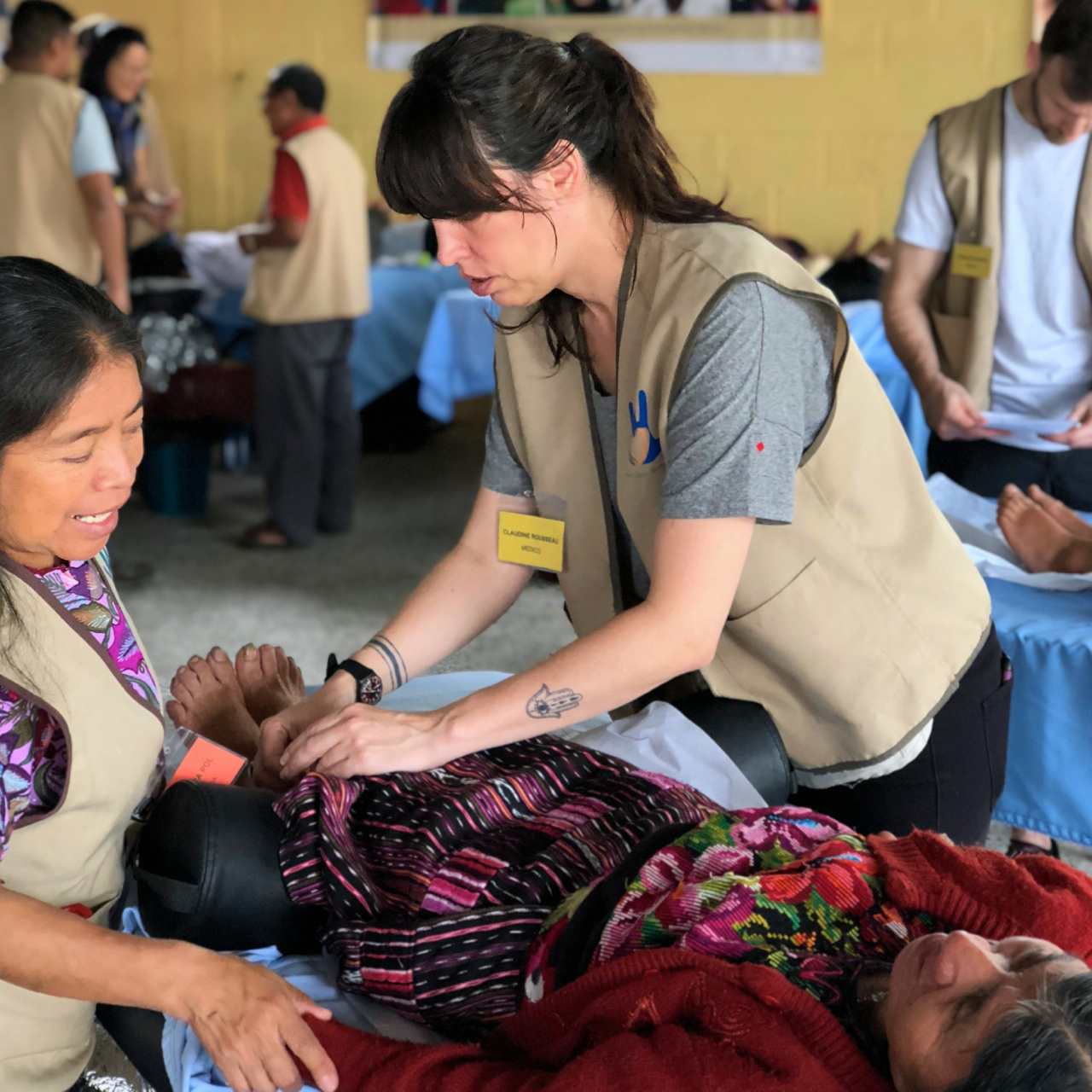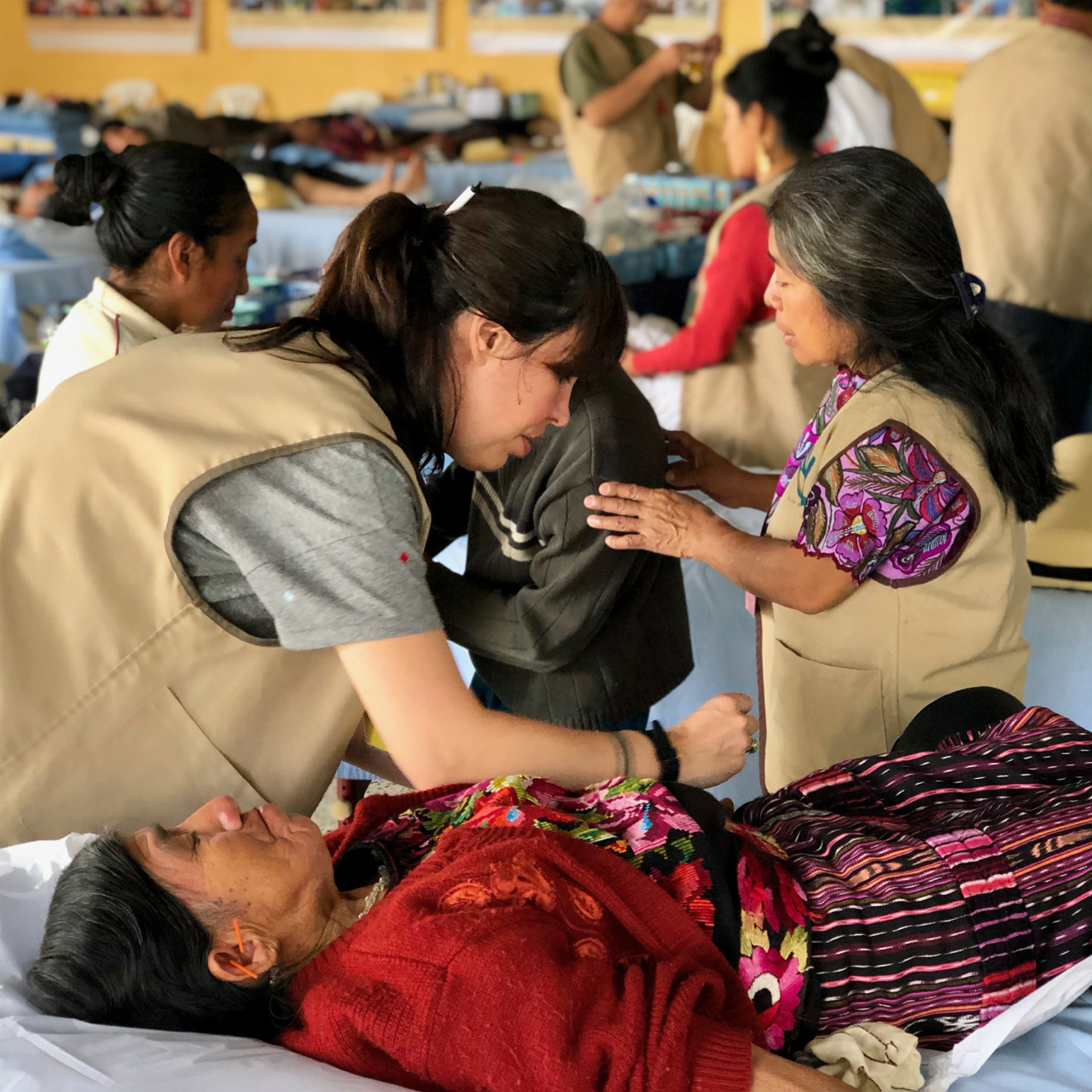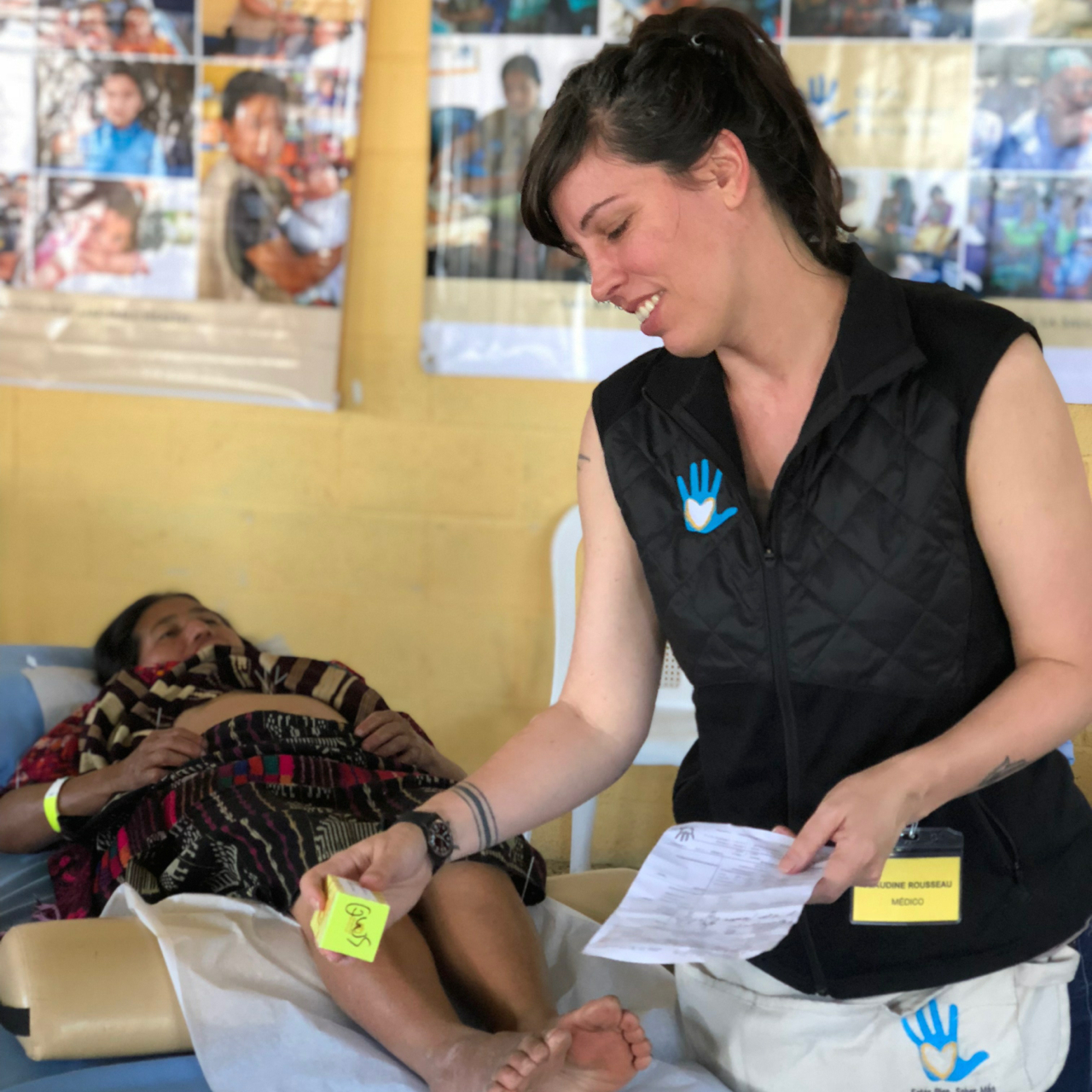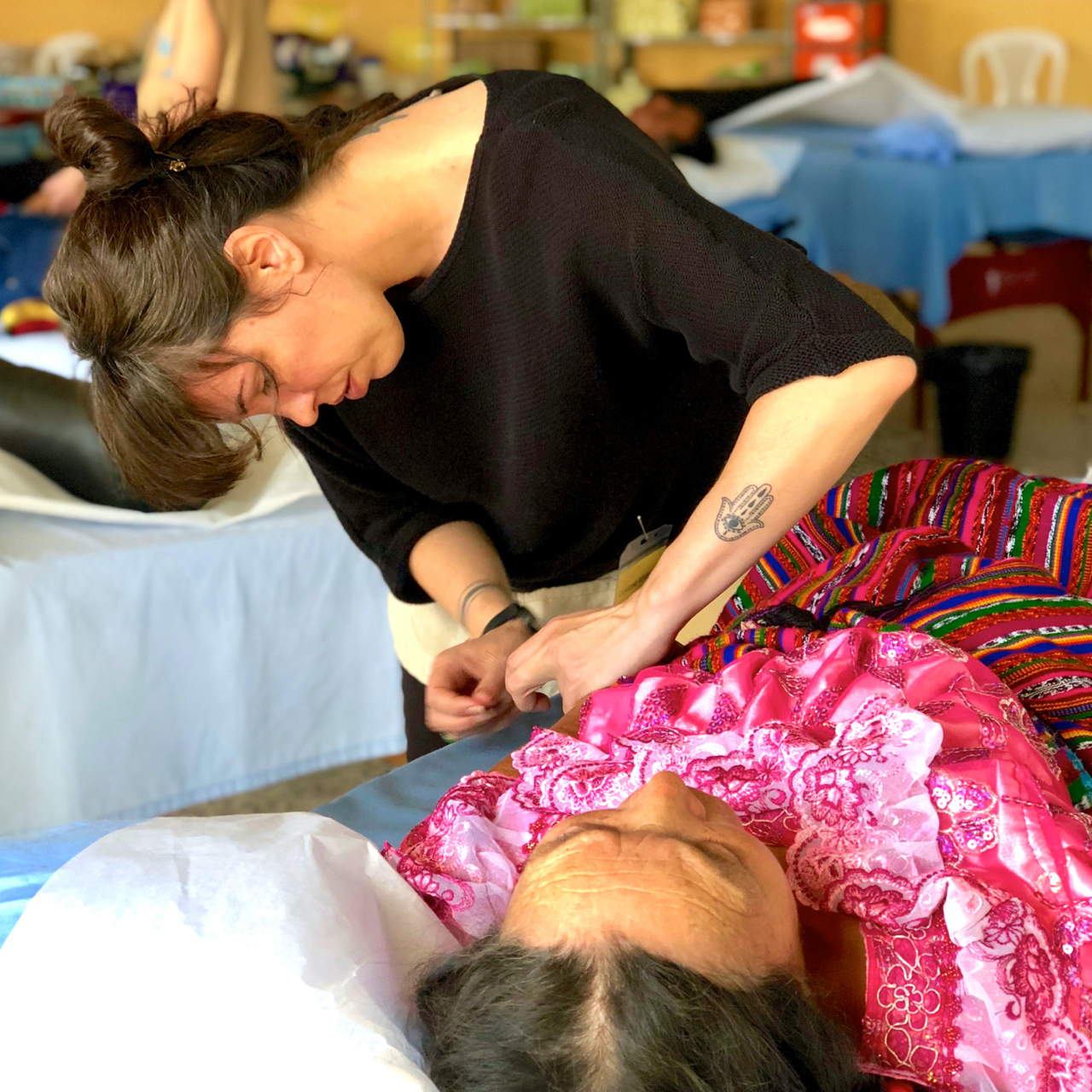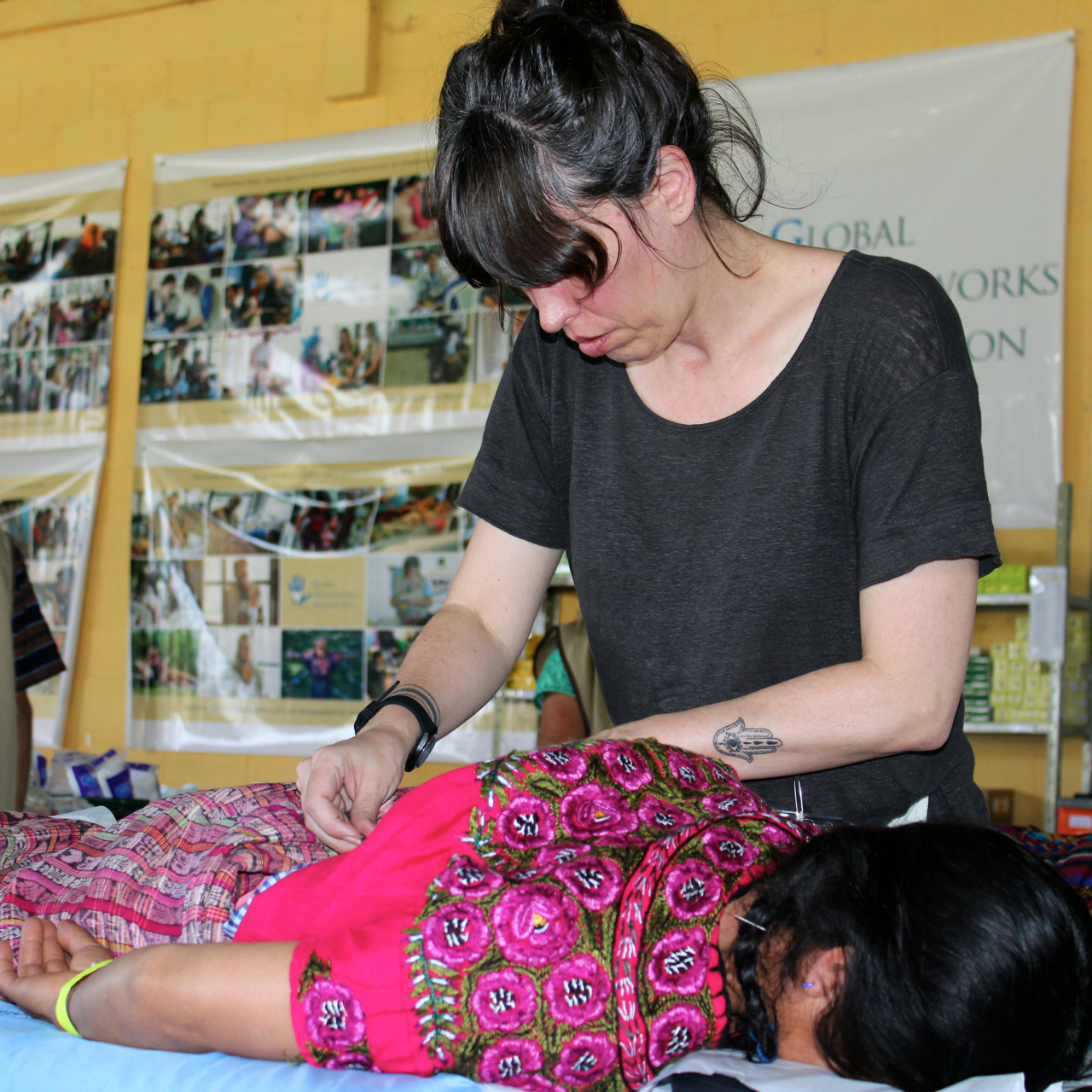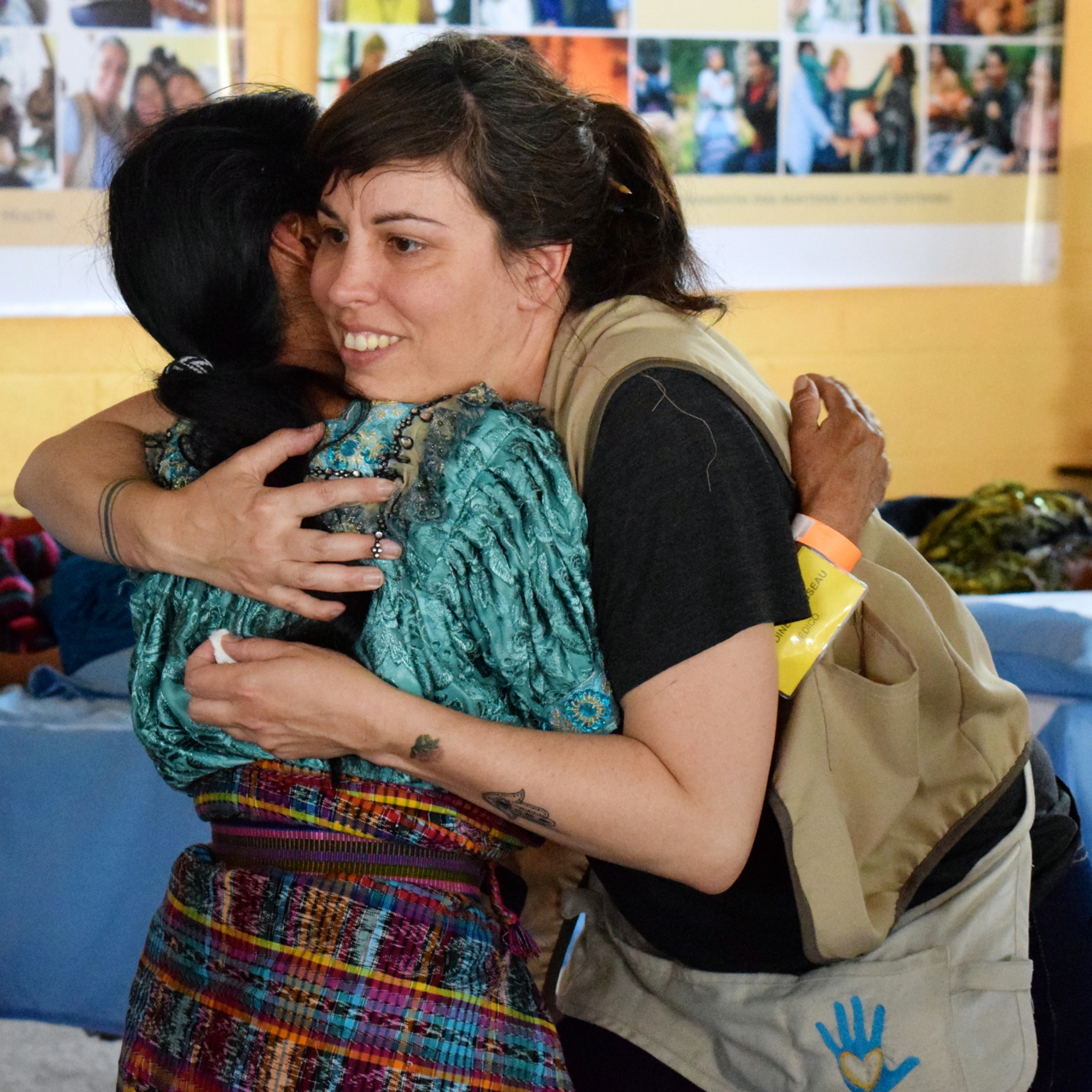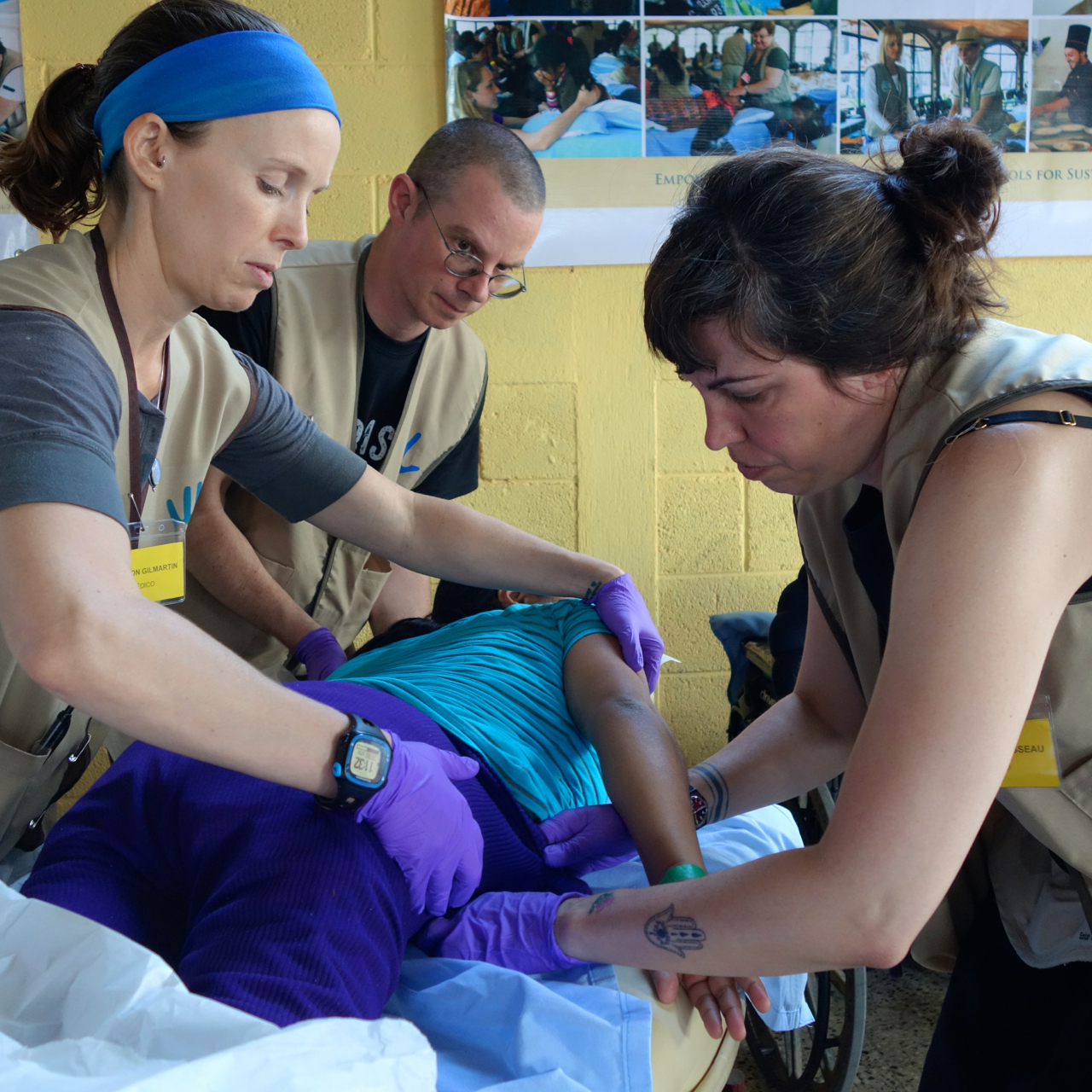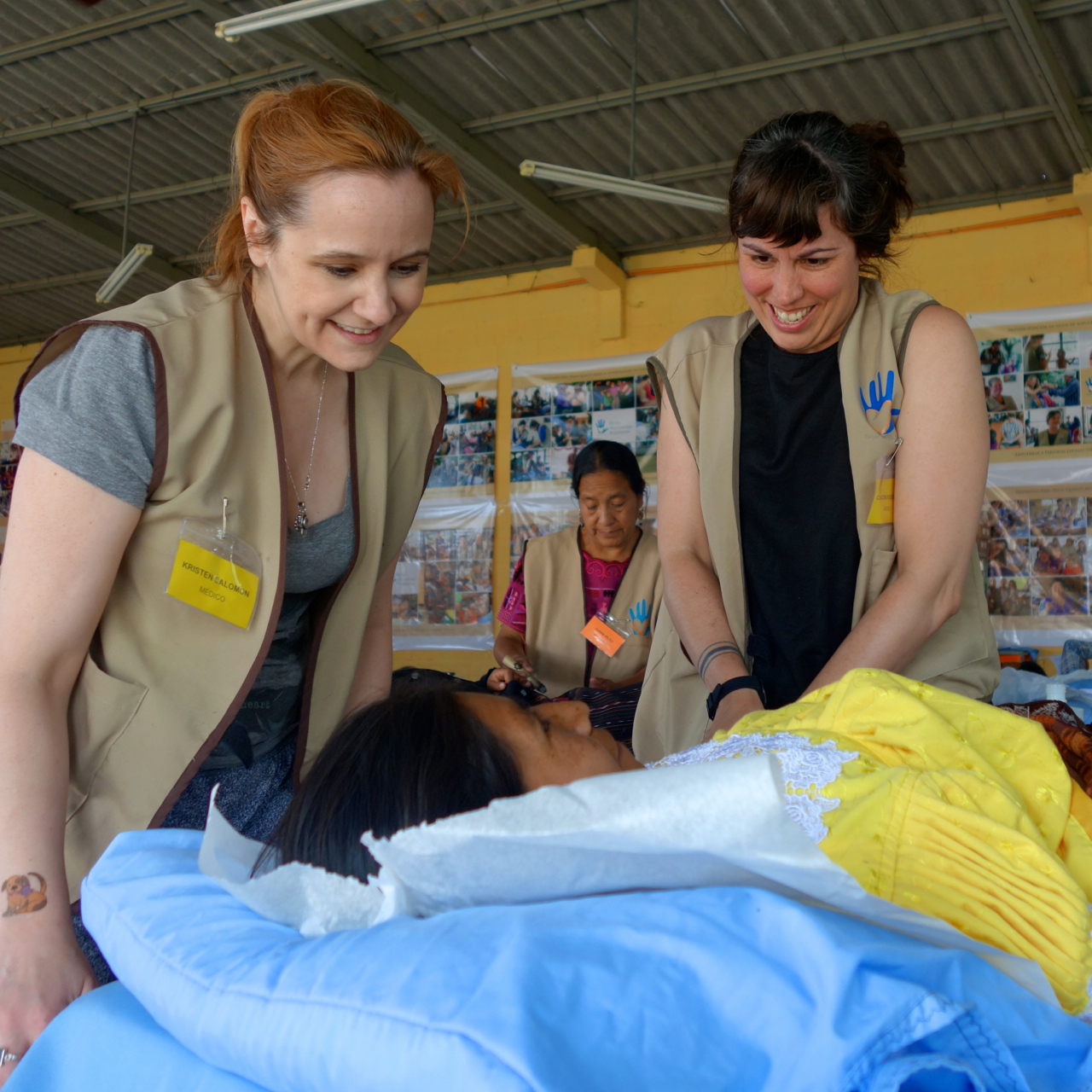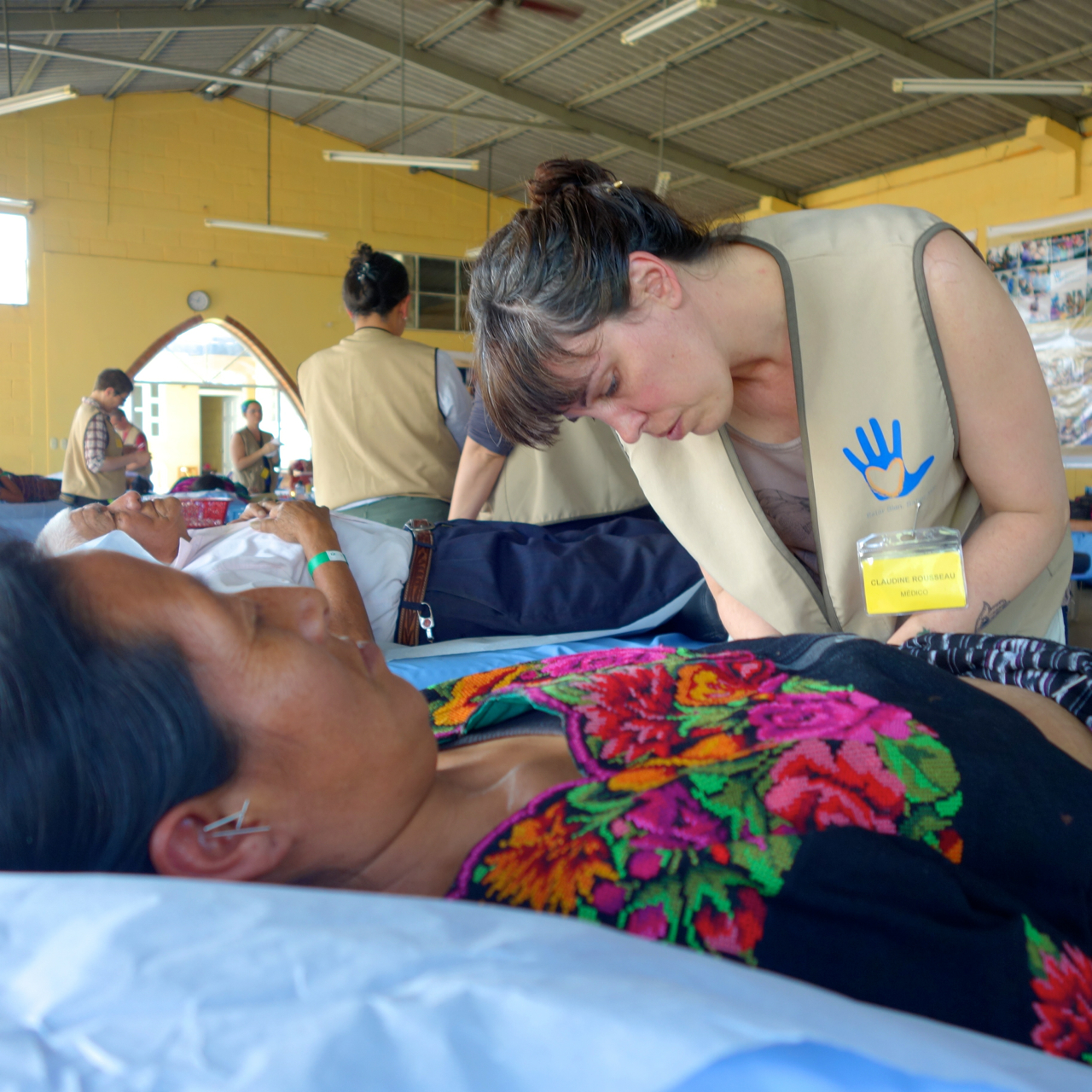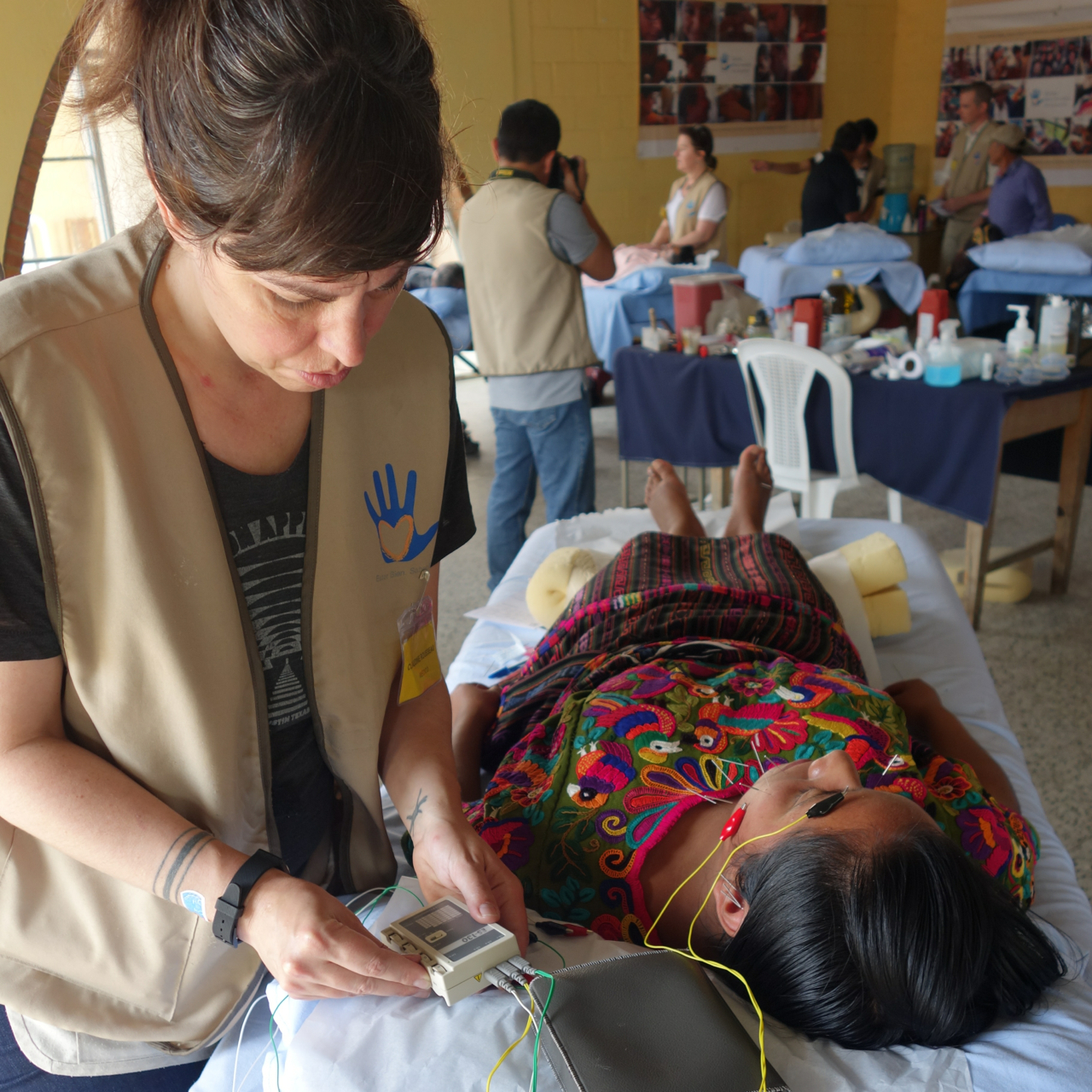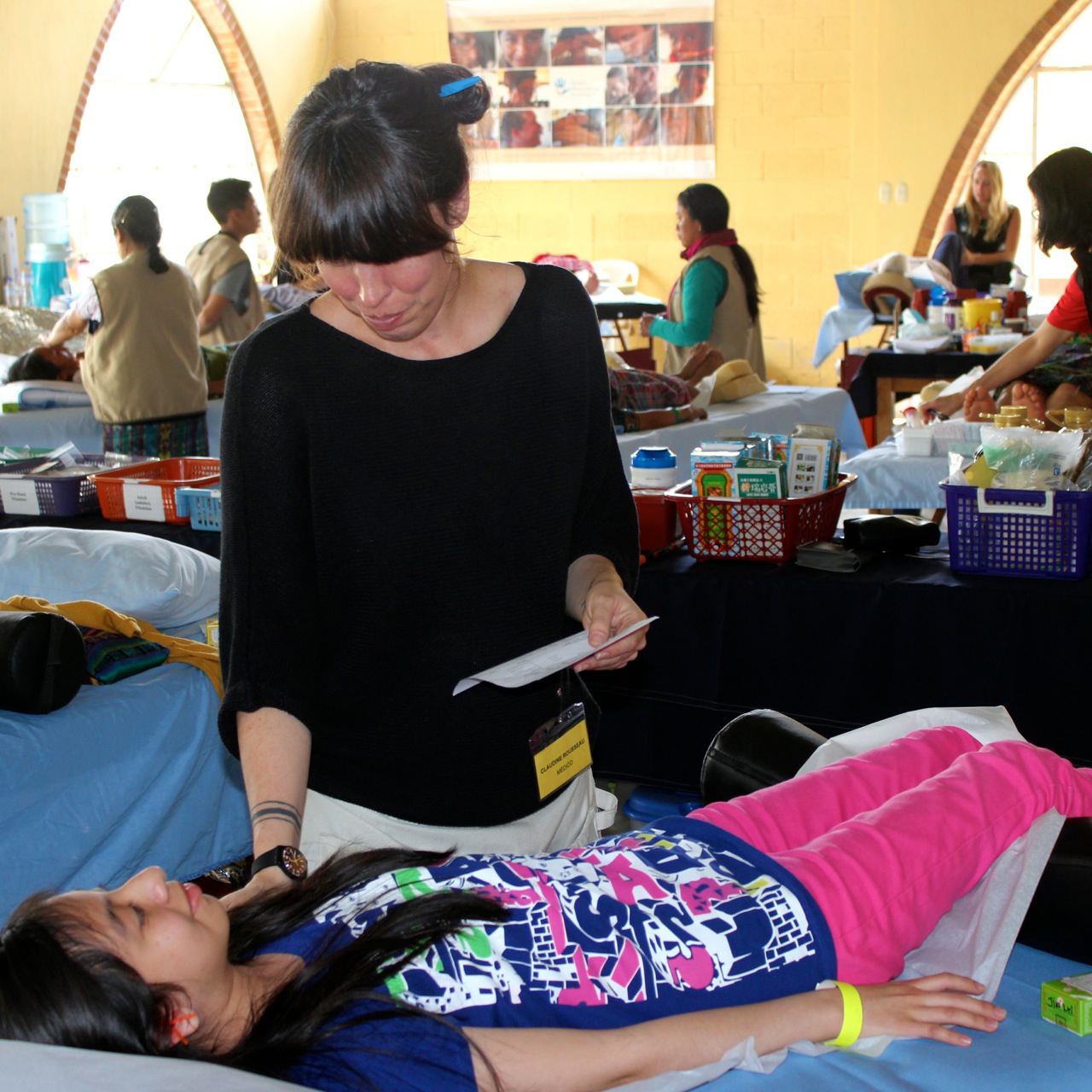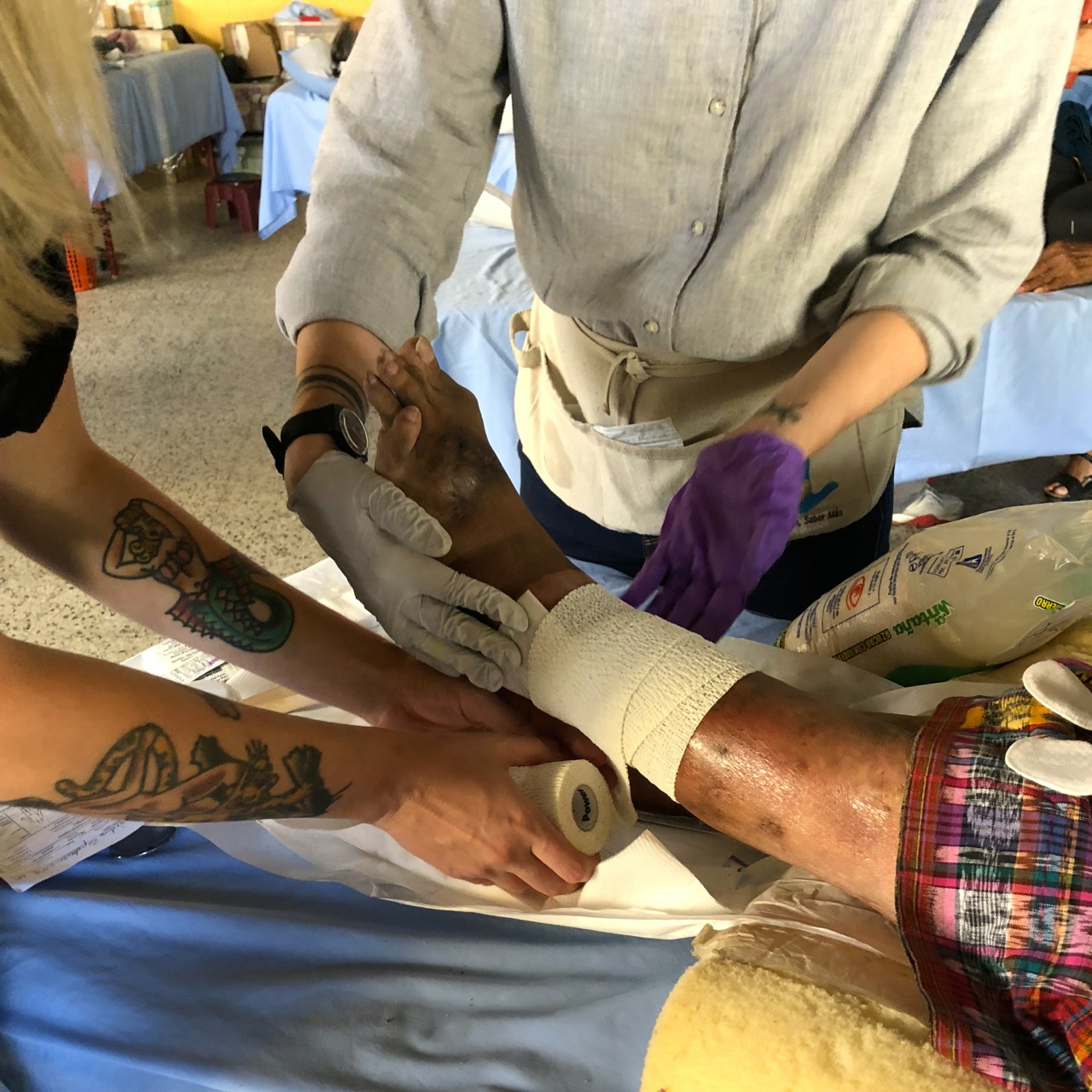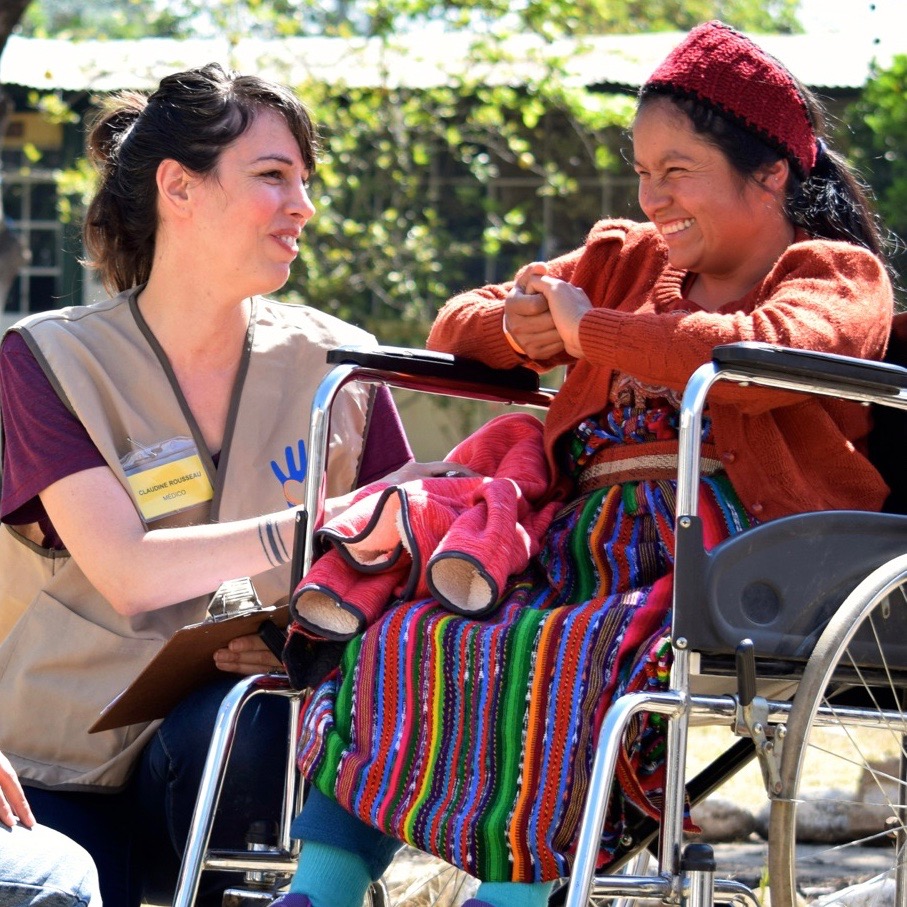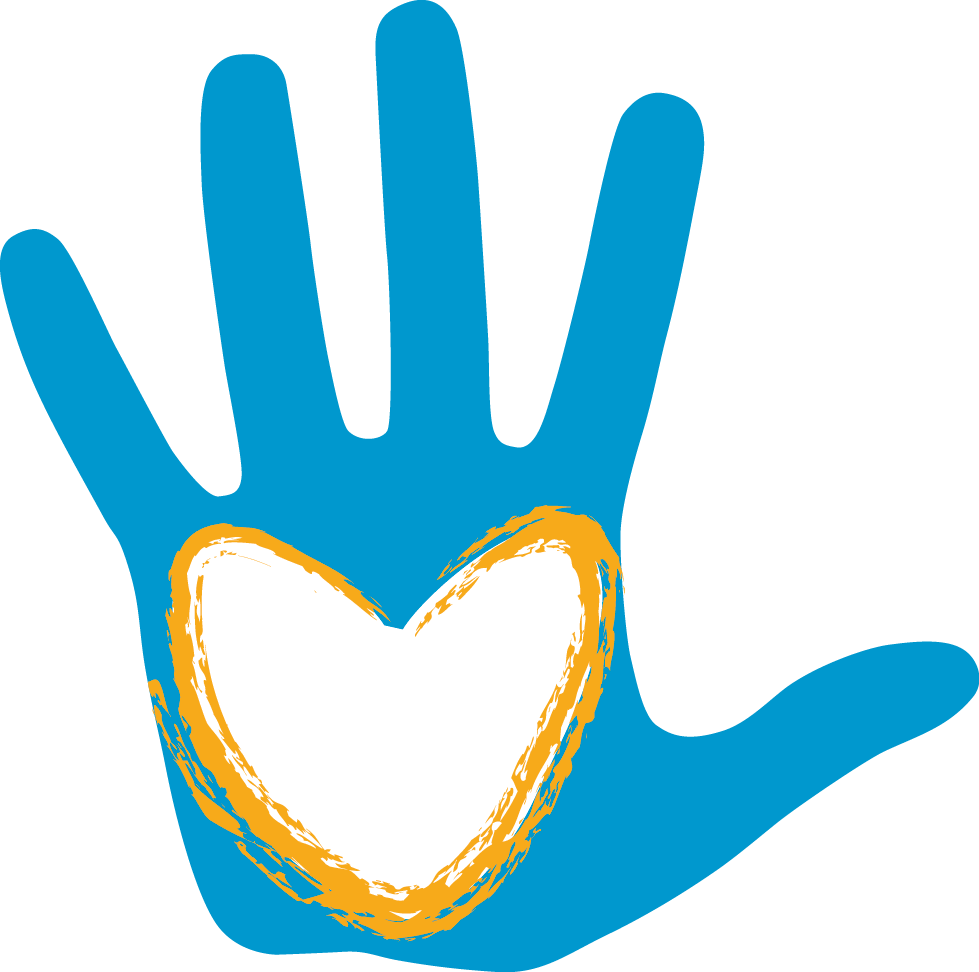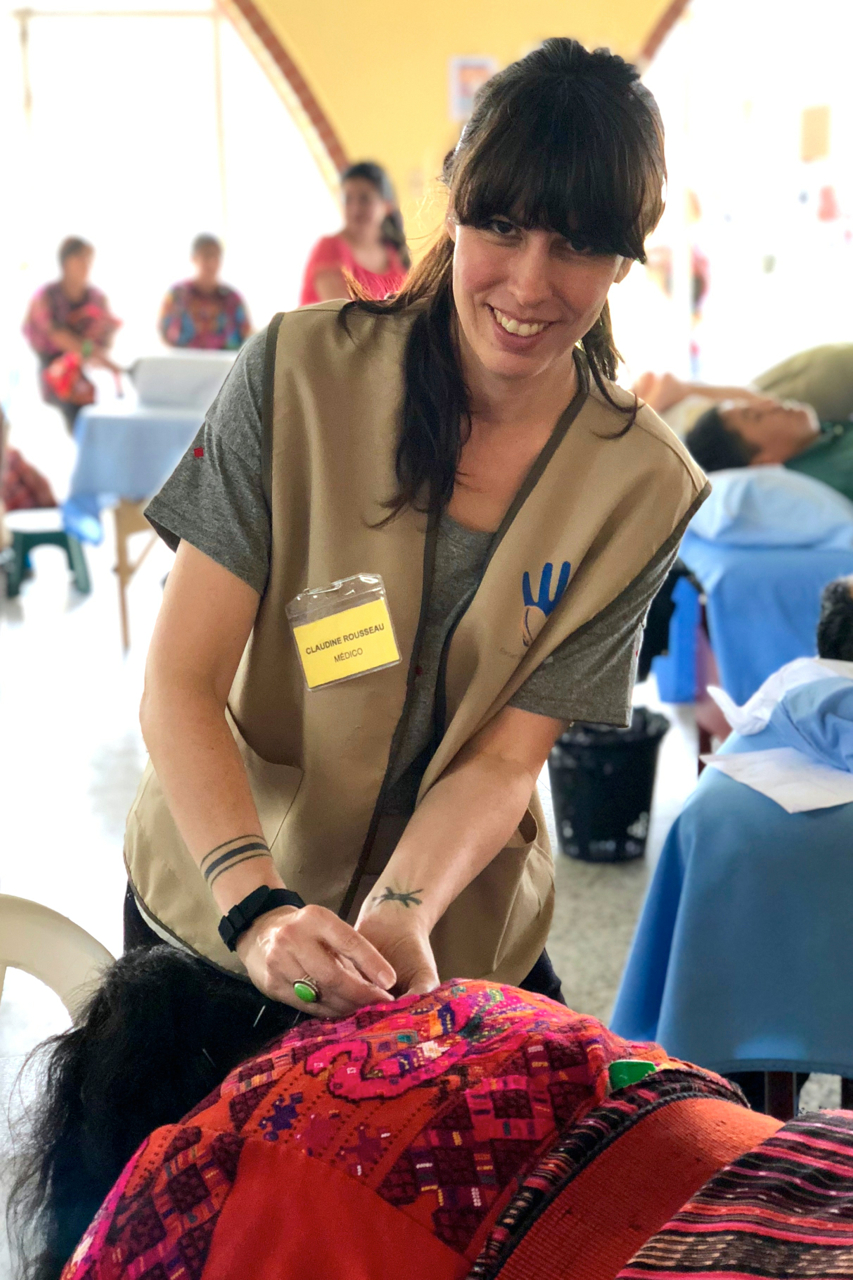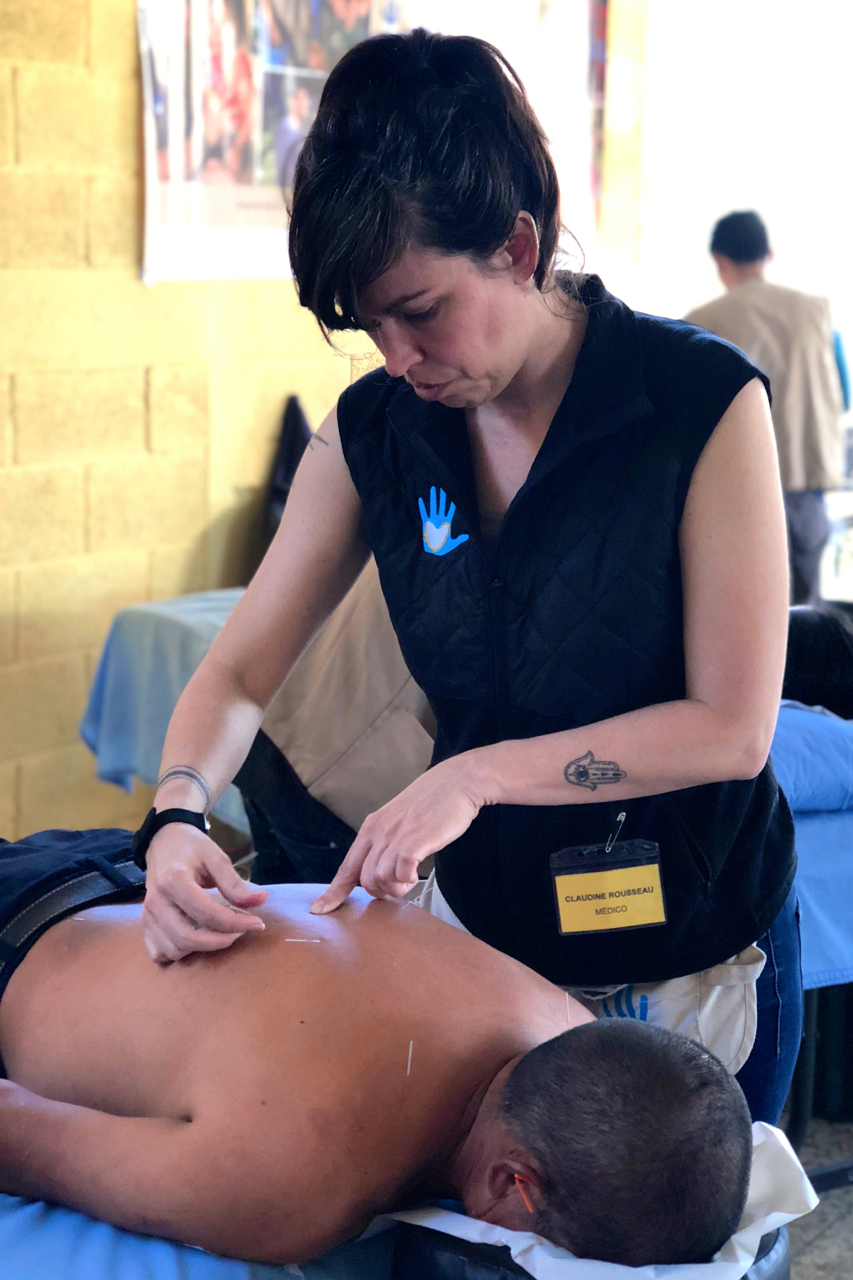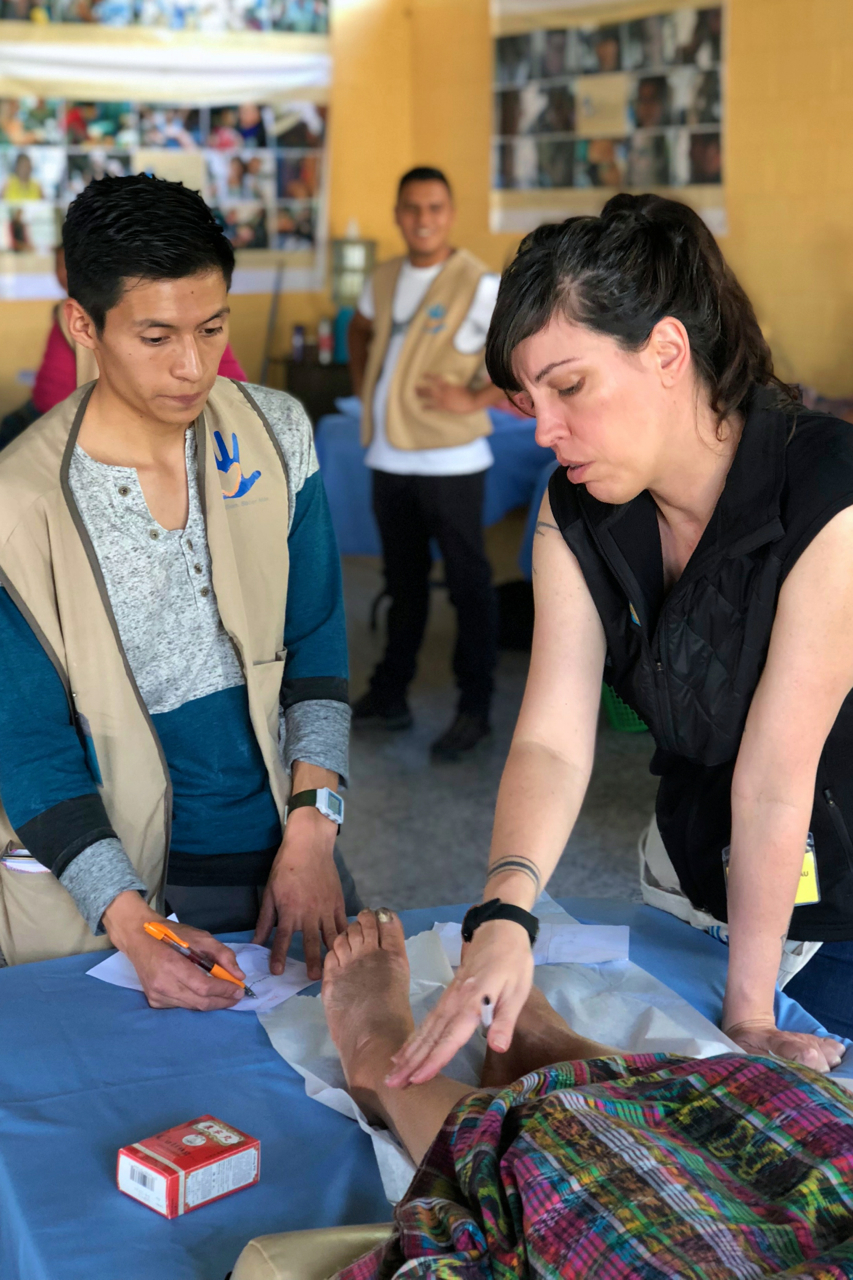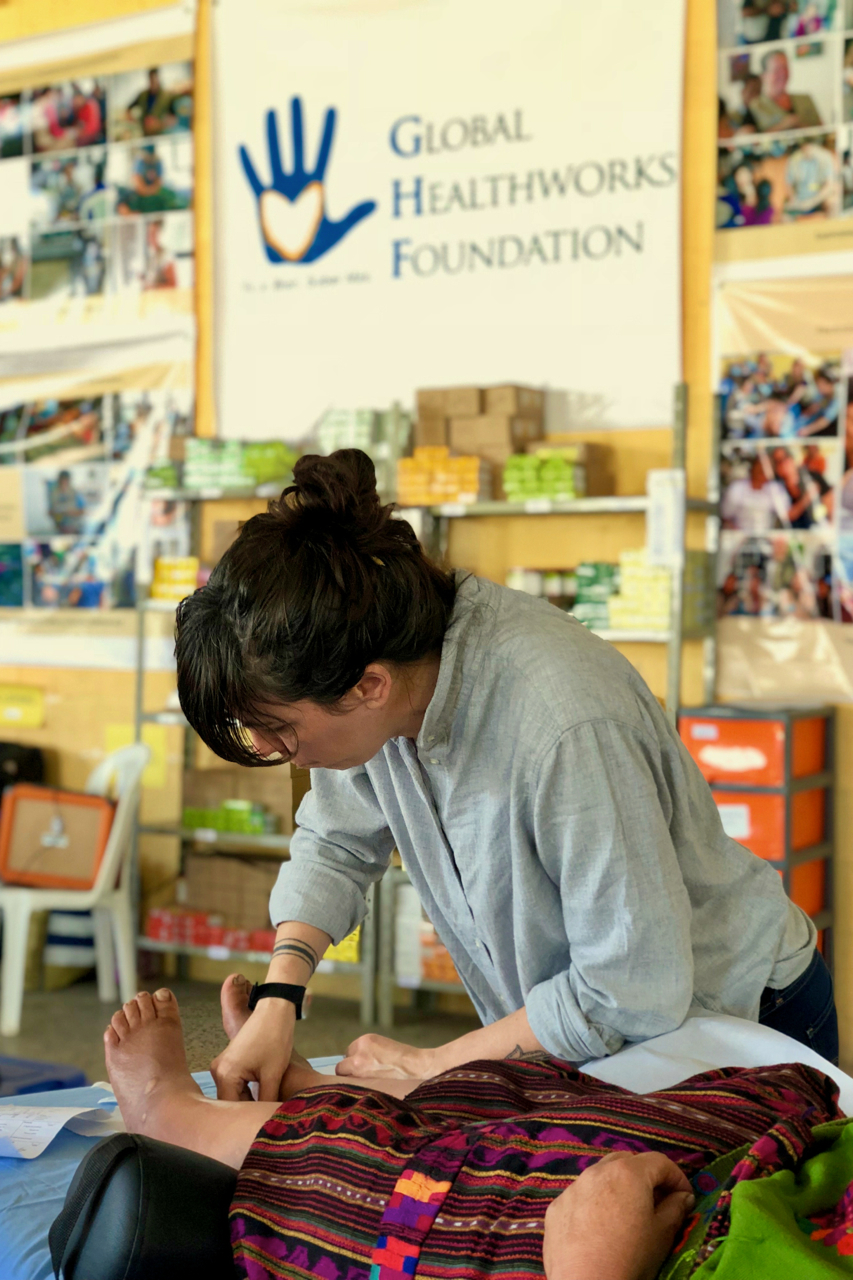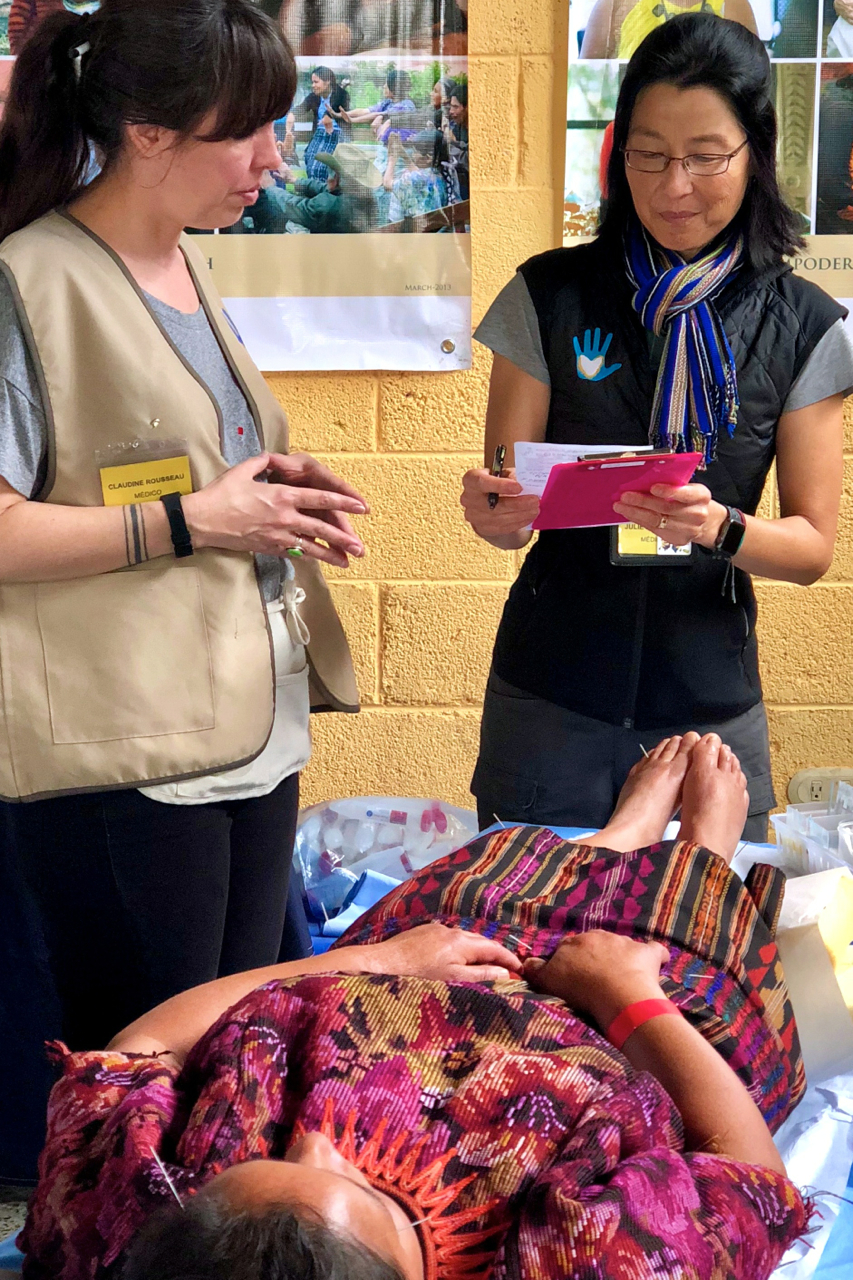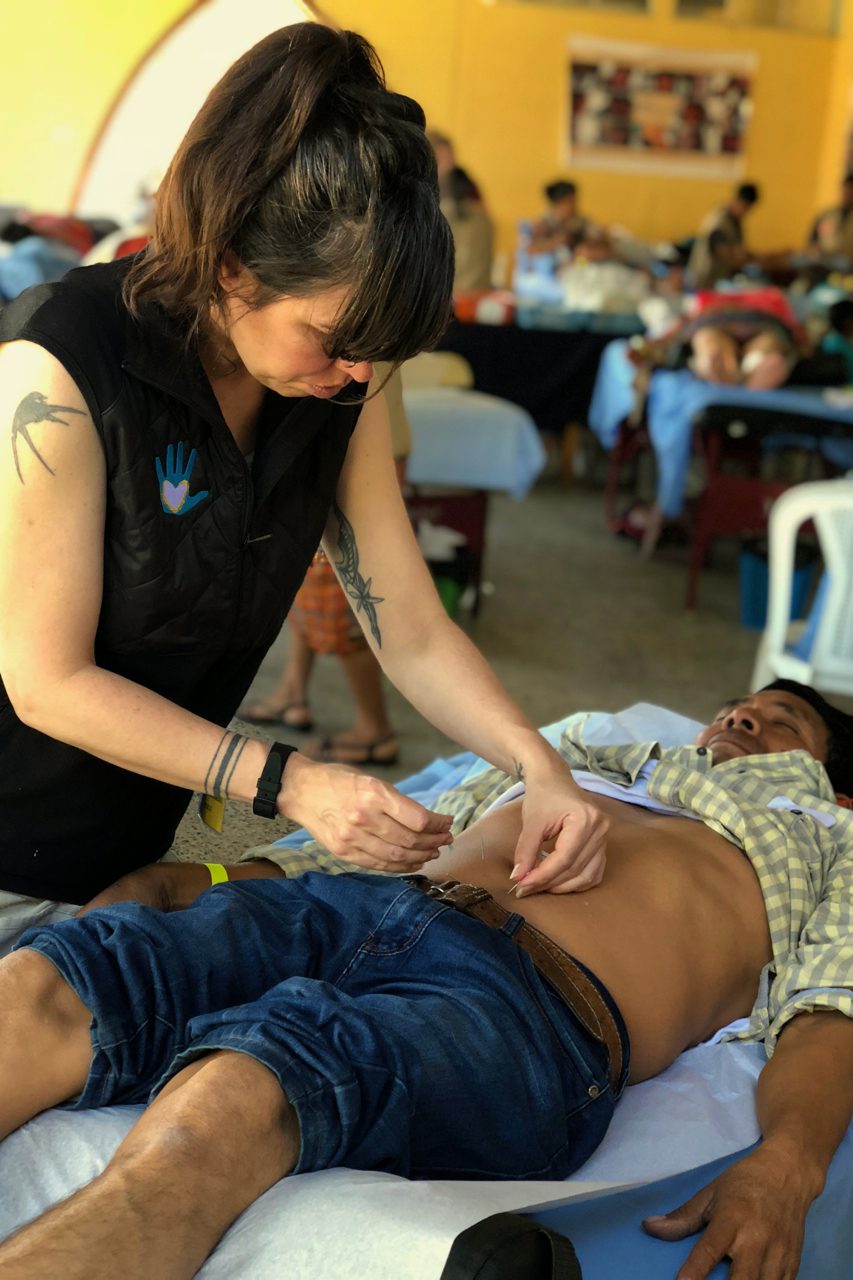Claudine Rousseau became Global Healthworks Foundation (GHF)’s Central American Program Manager in April 2018. During Claudine’s tenure with GHF, her impact in the mobile clinics has reached beyond individual patients to entire communities. Read all about Claudine’s story with Global Healthworks Foundation below.
“Always Improving”: Claudine Rousseau’s Dedication to Advancing Healthcare in Quiché
There’s an unmistakable sense of connectedness when Claudine Rousseau treats her patients. She is all at once serious, yet lighthearted; determined, yet adaptable; quick, yet steady. She is constantly trying to improve, learn, and become a better practitioner to serve her team and the greater good.
“I’m really curious and ask a lot of questions,” Claudine says. “I study a lot. I’m currently taking herbal classes online, doing Rosetta Stone to improve my Spanish, and I always want to know if there’s something better we can do in our clinics.”
Claudine began as Program Manager for Global Healthworks Foundation (GHF)’s mobile clinics in April 2018. Fresh out of acupuncture school, she learned about the opportunity from a friend and applied immediately. “I knew I wanted to go abroad. I sold all my possessions in one month, came down for the April jornada, and started right away. Now, I feel like I’m supposed to be here.”
With a number of excellent qualifications, including previous clinic experience, Claudine was a great fit from the start, says Dan Wunderlich, GHF Founder and Executive Director. “She stood out above our other candidates because of her previous history—she had done outreach work, spoke a few different languages, and was a quick learner. Even though she had just finished school, she had a mature skill set. And she has a way of looking at the bigger picture to help grow our outreach efforts. It’s already yielded incredible results.”
“I always want to know if there is something better we can do in our clinics.”
Claudine arrived to Guatemala wanting to know how she and her team could bring more people to the mobile clinics while maintaining a high quality of service. Small changes and streamlined processes have led to an increase in the number of patients seen and reports of positive, helpful treatments. “Aumentaron bastante. Hay más pacientes, y estamos dando más tratamientos. ([The numbers] have increased a lot. There are more patients, and we are giving more treatments),” says Ángel Solís, Mobile Clinic Coordinator. “Claudine siempre nos da la oportunidad de hacer más tratamientos. Es una persona muy abierta y participativa. (Claudine always gives us the opportunity to do more treatments. She is a very open and engaged person).”
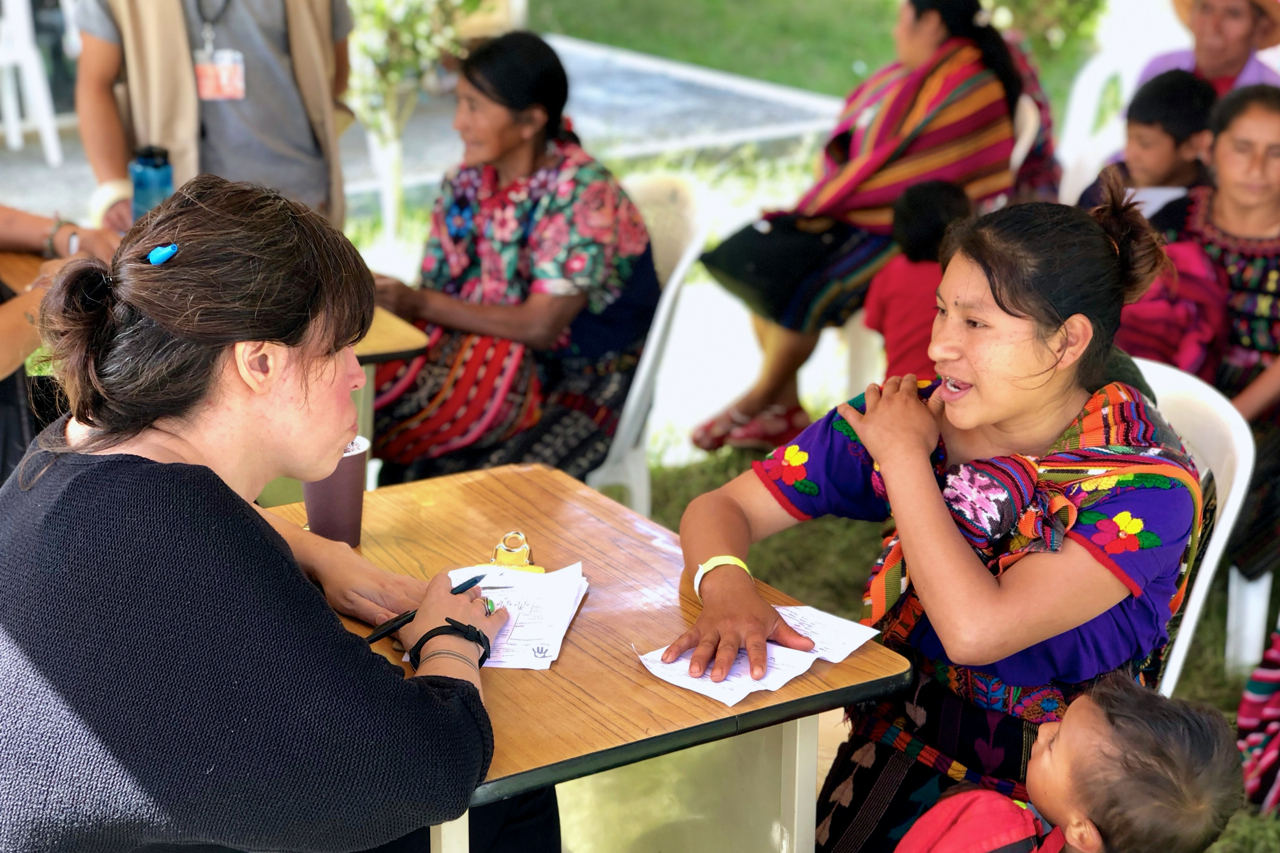
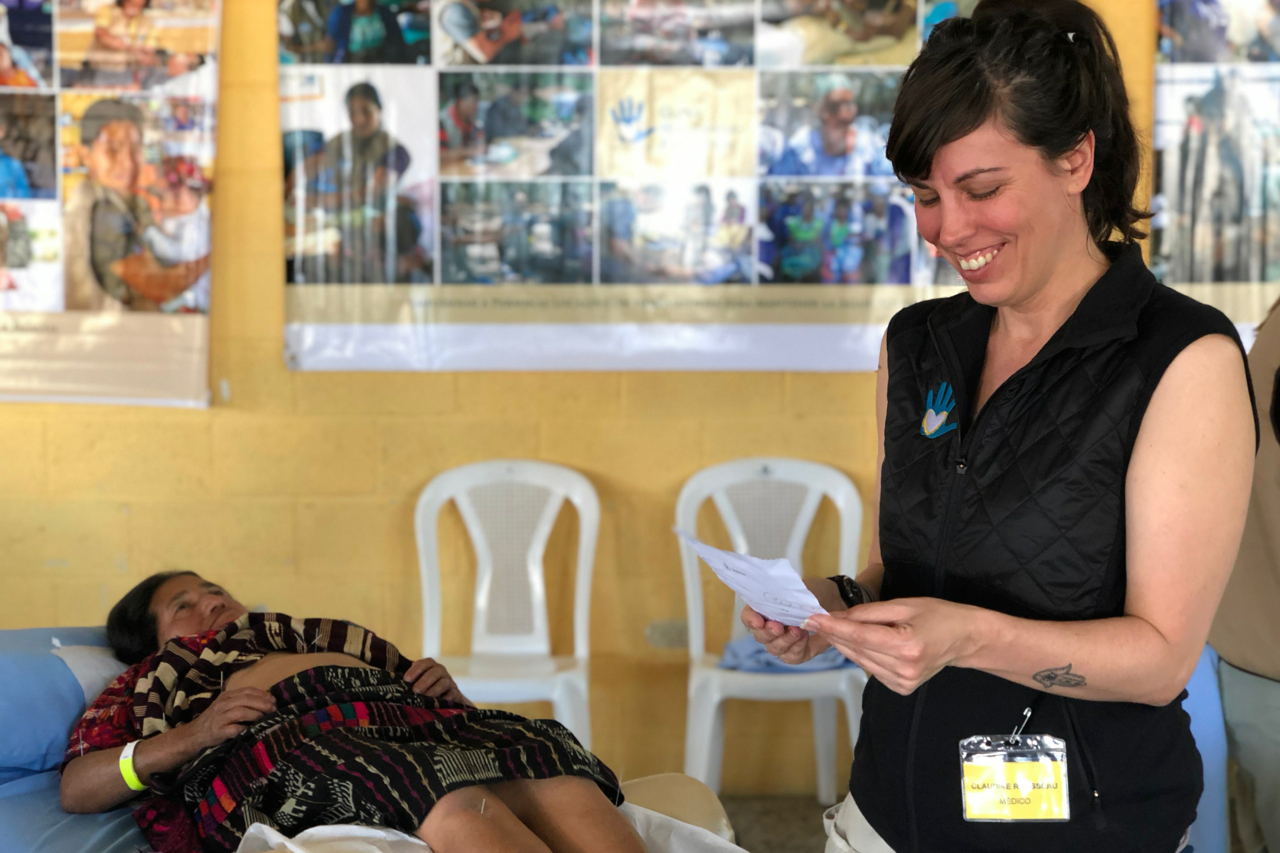
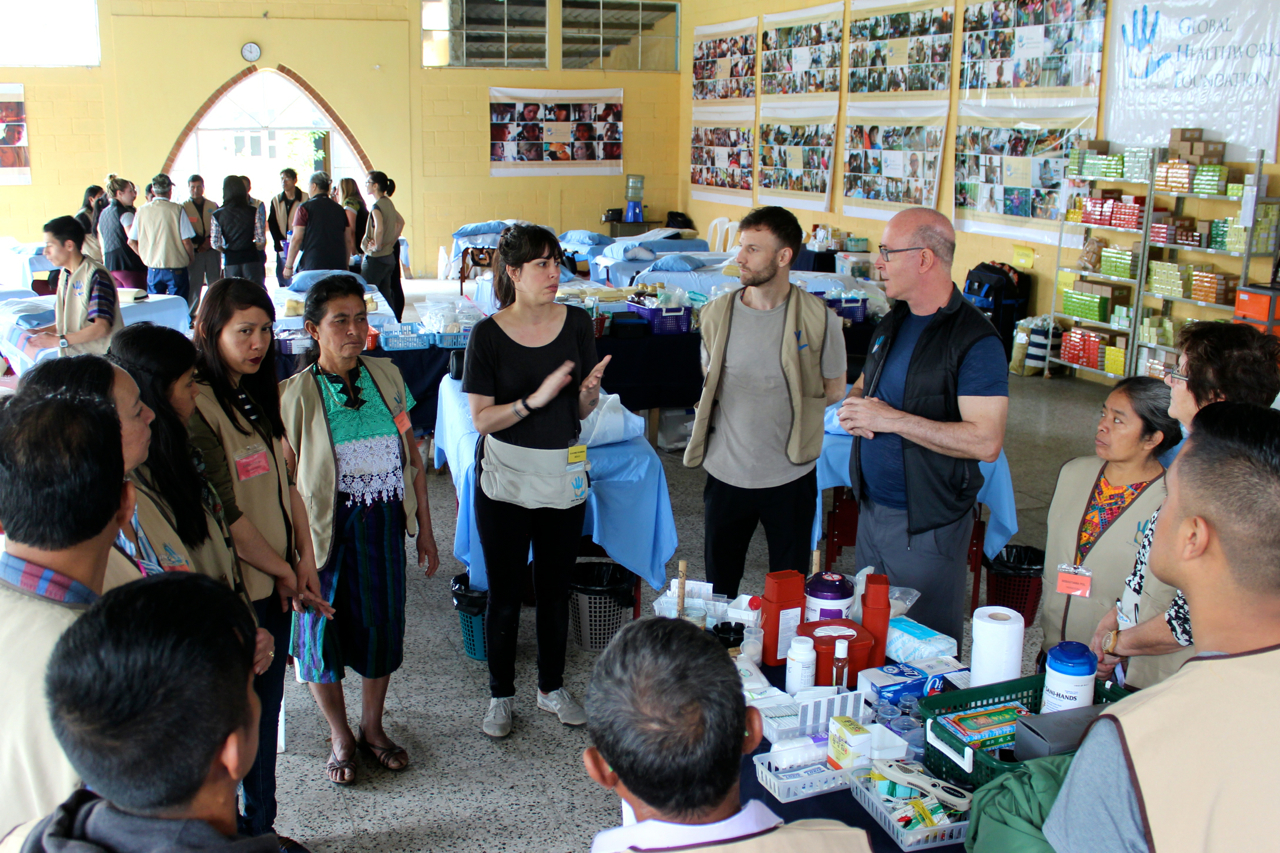
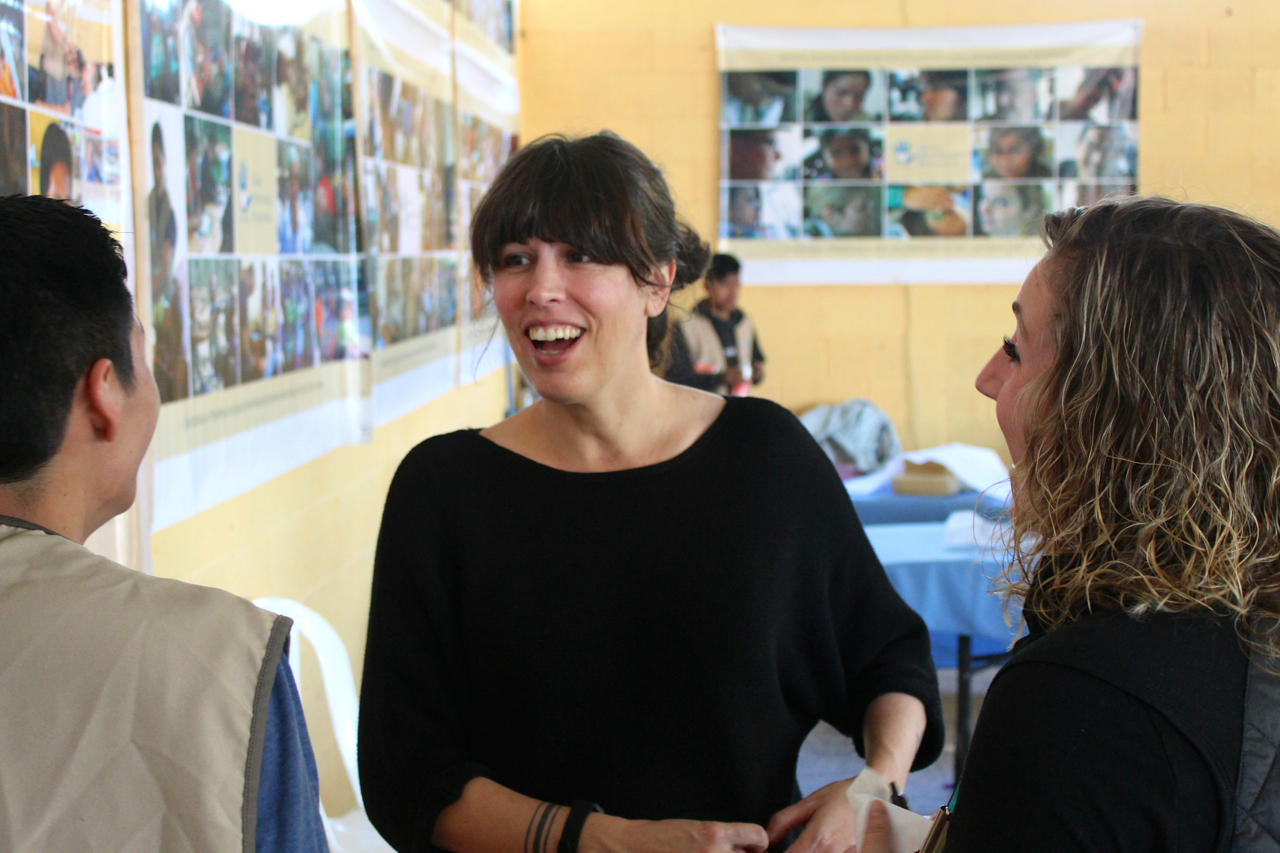
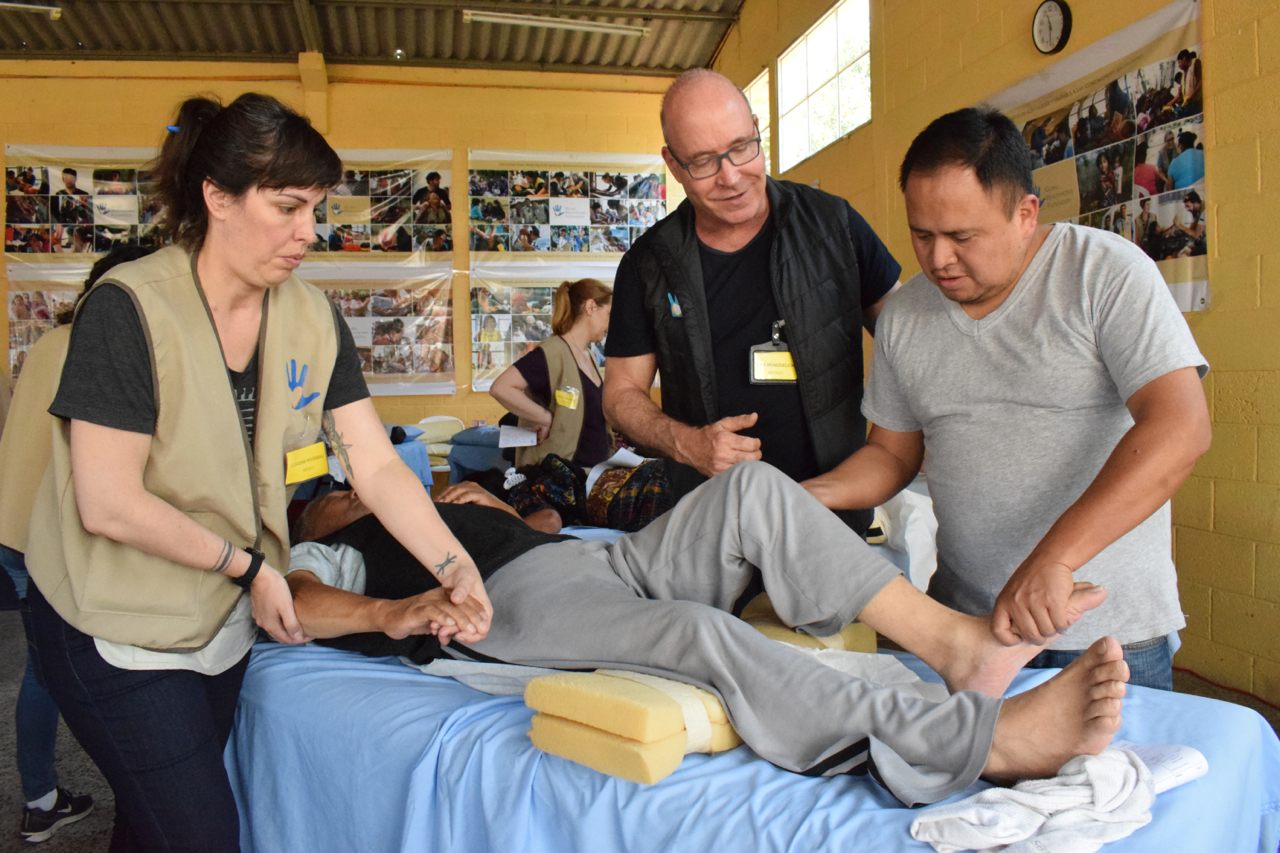
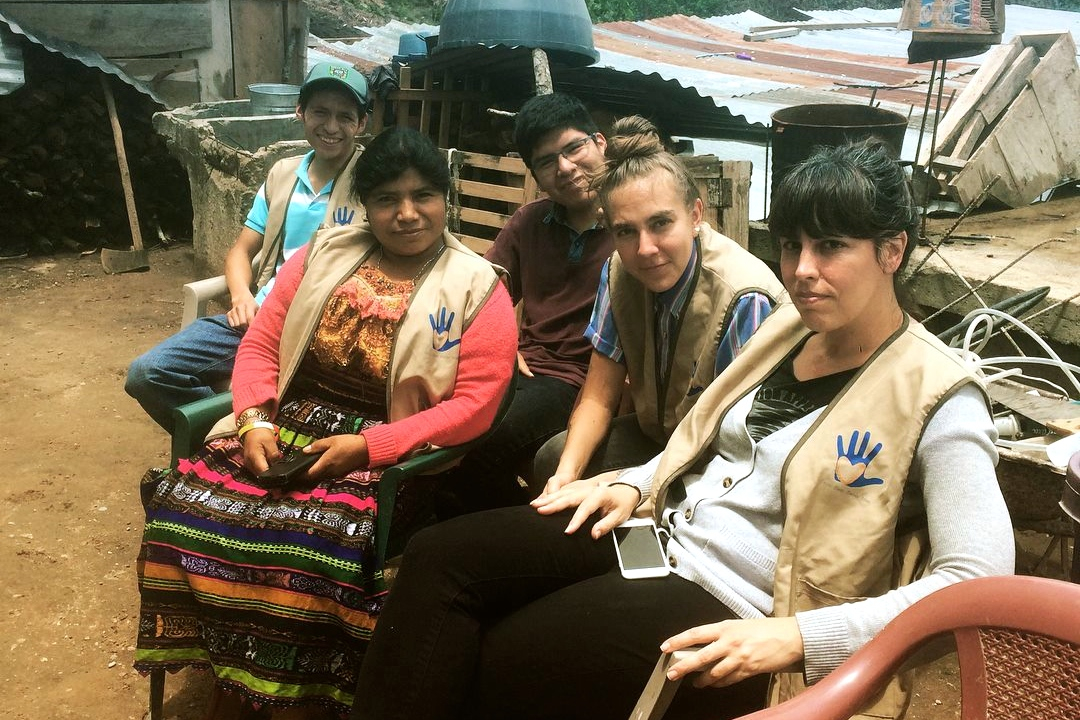
Still, Claudine says, there’s always more to be done, always another way to leverage their services. “During the past year, we’ve gotten more and more people in the clinic,” she explains. “But it’s tricky because people have to work to provide for their families. So, often, it’s either you work and eat or get a treatment. You have to feed your families. There’s a hand to mouth issue for a lot of the patients, so we are trying to make it easier for them to get a good treatment while still going to work.”
One of the ways Claudine and her team are helping to improve the patient experience is by integrating more local herbs into treatment plans. Claudine’s knowledge of herbs expands beyond traditional Chinese medicine to plants from the Quiché area, serving to create an even deeper connection between patient and practitioner and practitioner and community. “Con los pacientes, ella es milagrosa. (She is a miracle with the patients),” Ángel says. “Sabe mucho de hierbas locales, y tiene mucho amor con los pacientes y con nosotros. (She knows a lot about local herbs, and she has a lot of love with the patients and with us).”
One of the reasons Claudine connects so well with patients, Ángel adds, is her understanding of female health concerns. As a majority of clinic patients are women, the presence of a female practitioner has helped to create a sense of comfort and trust that’s often more difficult for male practitioners to achieve. “Sometimes it’s hard for the women to talk to our male team even though they’re incredibly open people,” Claudine explains. “I often ask follow-up questions after triage. In a way, I think it’s helped us understand more clearly how indigenous women and their reproductive rights are seen and how we can support them within a medical system that doesn’t really exist for them.”
GHF Mobile Clinic Team
This knowledge and understanding, says Juan José Mejía, Mobile Clinic Coordinator, is a gift unique to Claudine. “Las personas, especialmente las mujeres, sienten una confianza con ella. Le dicen cómo son los problemas más íntimos. (The people, especially women, feel confident with her. They tell her about their most intimate problems),” he says. “Ella es la definición de extraordinaria. (She is the definition of extraordinary.)”
Though she sometimes questions the impact she and her team are making, Claudine feels as though she’s exactly where she’s supposed to be. “After three days of treating one hundred people a day, I don’t know if I’ve helped everybody. I get those satisfactory moments with patients who have gotten progressively better, but there’s still always that question. We’re always improving, and I love it. I’ll see some of the translators outside of the clinic, and they always say, ‘You look so happy.’ And I am. This is the best job I’ve ever had.”
